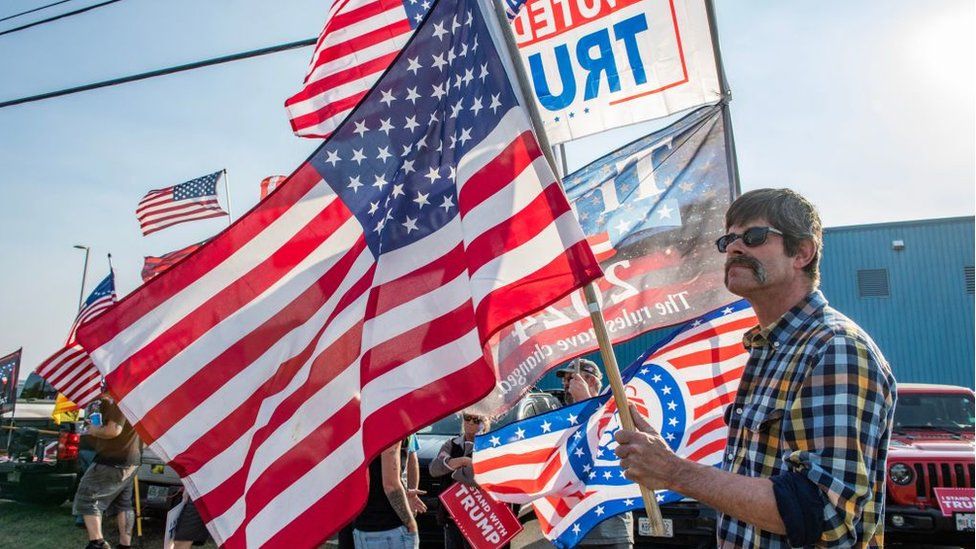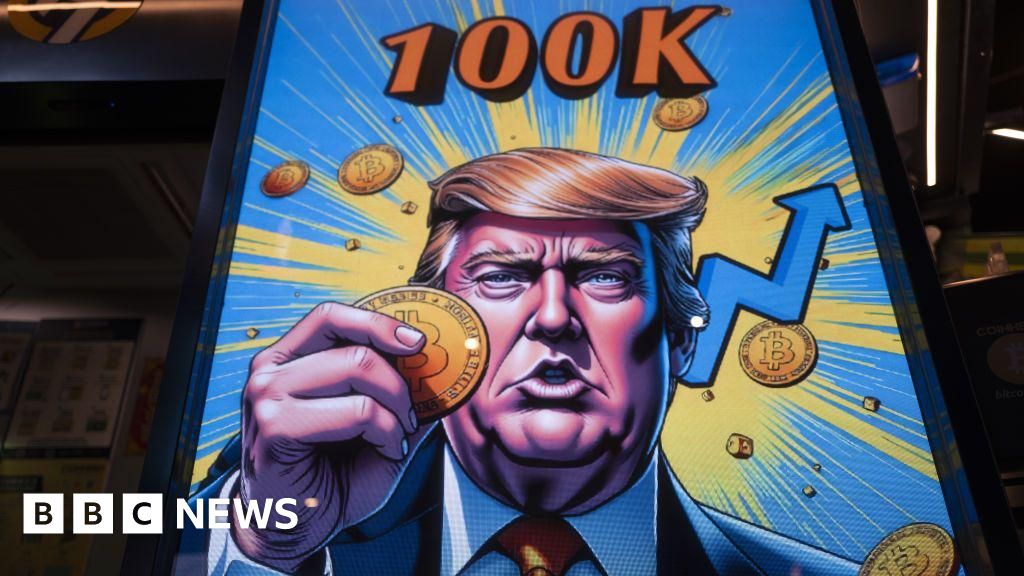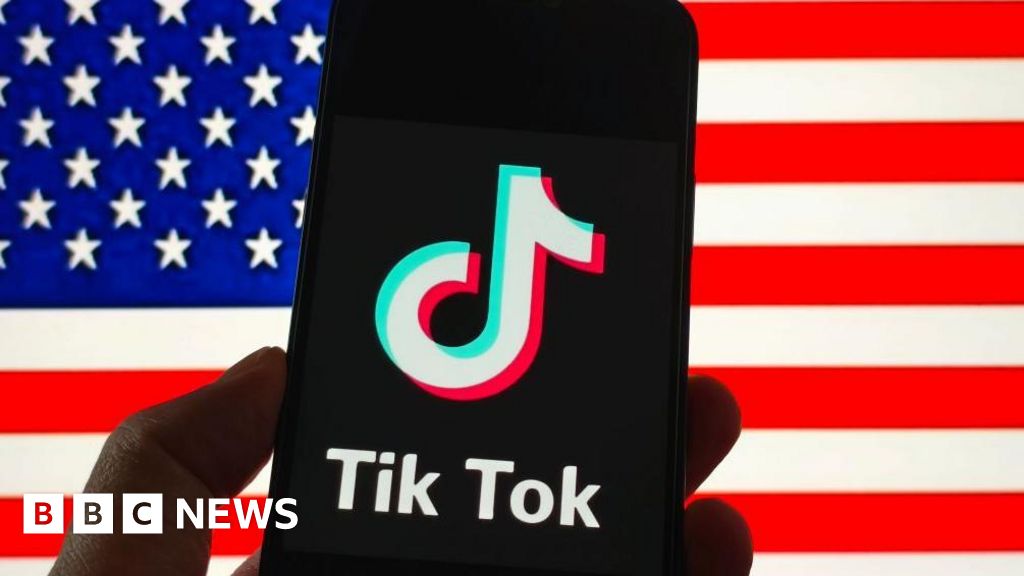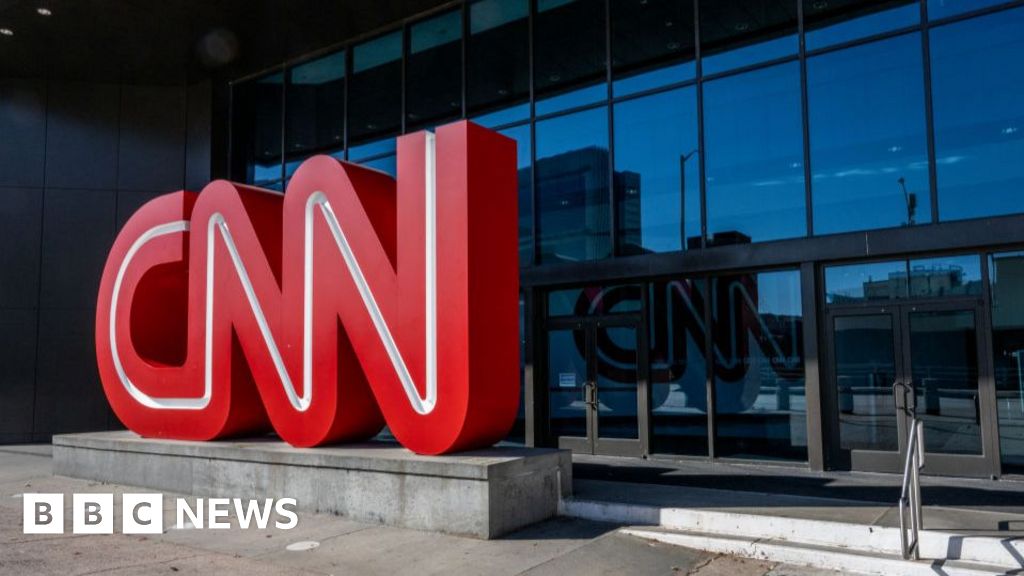ARTICLE AD BOX
 Image source, Getty Images
Image source, Getty Images
Donald Trump supporters have started to gather outside the Miami courthouse where the former president will appear on charges he mishandled classified documents.
Law enforcement officials are braced for protests after he called on his followers to take to the streets.
The city police chief said he was preparing for a crowd of "anywhere from 5,000 to 50,000".
"We're taking this event extremely seriously," he said. "We know that there is a potential of things taking a turn for the worse."
A post on Mr Trump's Truth Social platform earlier in the week said to his followers: "SEE YOU IN MIAMI ON TUESDAY".
By mid-morning there were only a few dozen outside court but many more outside his hotel where he stayed on Monday night. He will travel from there to the courthouse for a 15:00 local time (19:00) hearing.
Messages calling for protests had been posted online by groups including the far-right Proud Boys.
In advance of his last criminal indictment, in New York City in April, the former president had asked his supporters to take to the streets but most stayed away, fearing a trap.
False rumours spread that Trump fans would be arrested in Democratic-run New York, or even that violence would be orchestrated by the government or left-wing anti-fascist groups, and subsequently would be blamed on the ex-president's supporters.
In the end, a few hundred protesters appeared outside the Manhattan courthouse, according to reports.
This time, the mood among his supporters is different, says Caroline Orr Bueno, a researcher on extremism and misinformation at the University of Maryland.
"There's more resentment and grievance," she says. "They believe that Trump did something that others have done [in his handling of classified material], and yet nobody else is being prosecuted."
This time, she says, more prominent voices are also endorsing the idea of protests.
They include Charlie Kirk, head of the conservative group Turning Point USA, who tweeted: "GO to Miami Tuesday, and show solidarity or we will mark you as part of the opposition."
A channel on the messaging app Telegram run by a Miami chapter of the Proud Boys - a far-right all-male group that was involved in the January 2021 Capitol riot - called for a protest prior to Tuesday's court hearing, urging supporters "COME AND BRING BANNER SUPPORTING TRUMP".
Image source, Truth Social
In Miami, federal agents will help secure the area around the courthouse along with local police, and Secret Service agents will guard Mr Trump.
Police declined to give exact details of security, but Mr Morales said they had not called on the National Guard for support and he said police had seen no credible threats of violence for Tuesday.
Trump supporter Gregg Donovan was out in front of the Miami courthouse before the sun was up on Tuesday.
"When I thought about coming to New York I was a bit fearful," he said. "I've heard there's a lot of crime there and that they've defunded the police."
Mr Donovan said he felt safer in Miami.
At the same time, some of Mr Trump's supporters have ramped up heated rhetoric around the indictment.
Trump ally Kari Lake, who lost the Arizona governor's race last year, told a party meeting in Georgia last week: "If you want to get to President Trump, you're going to have to go through me, and you're going to have to go through 75 million Americans just like me.
"Most of us are card-carrying members of the NRA [National Rifle Association]. That's not a threat, that's a public service announcement."
After the indictment was announced, Andy Biggs, a Republican member of the House of Representatives also from Arizona, tweeted: "We have now reached a war phase", while conservative activist Wayne Allyn Root called the latest indictment a "declaration of war".
But Jared Holt, a senior researcher at the Institute of Strategic Dialogue, which tracks hate and extremism, says that so far there is not much crossover between online conversations about protests and chatter about violence.
"They're not really intersecting the way they were before," prior to events such as the Unite the Right rally in Charlottesville in 2017, or the Capitol riot of January 2021, he says.
Some paranoia over protests is still apparent in some of the most fevered pro-Trump circles, Mr Holt says, and efforts to rally protesters are getting mixed reactions in those networks.
Ms Orr Bueno, the extremism researcher, says that general talk of guns and violence is nothing new, but there is one thing that marks this situation out from reactions to other political flashpoints.
"You're not seeing any condemnation from other, more establishment Republicans, who don't usually make these sorts of comments," she says. "Without anyone speaking against it in the party, these comments can quickly become the new norm."
With reporting from Alexandra Ostasiewicz in Miami

 1 year ago
30
1 year ago
30








 English (US) ·
English (US) ·